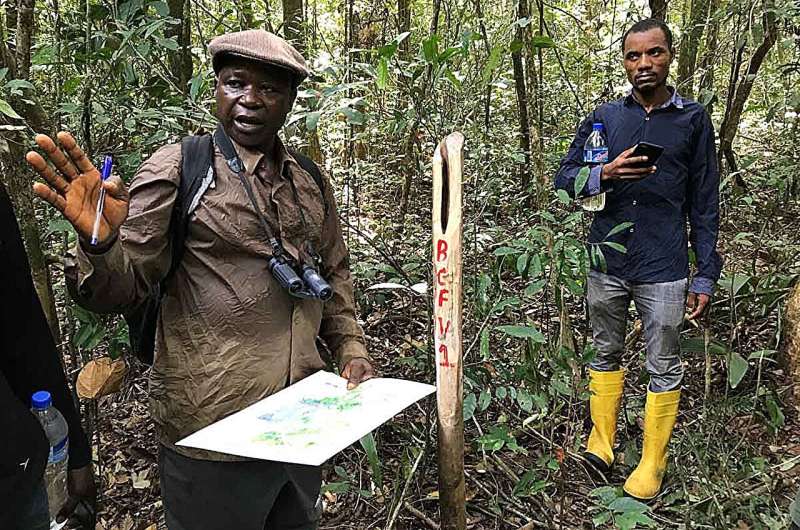This article has been reviewed according to Science X's editorial process and policies. Editors have highlighted the following attributes while ensuring the content's credibility:
fact-checked
trusted source
proofread
Using forest resources strengthens food security, study finds

Forests can reduce hunger in rural households while also capturing carbon and advancing sustainability goals for low- and middle-income countries, according to new research by University of Notre Dame experts.
Households in Liberia that participated in forest-based activities—including collecting and processing timber, hunting bushmeat or gathering edible plants—reduced their food scarcity by 84%, according to a study published in the journal Food Security. The research was conducted by Daniel C. Miller, associate professor of environmental policy at Notre Dame's Keough School of Global Affairs, and co-author Festus Amadu, a former Notre Dame postdoctoral researcher who is now assistant professor of climate policy at Florida Gulf Coast University.
"Previous research has shown that forests benefit people, but now we have evidence on a national scale," Miller said. "Forests are a vital source of food security for forest-adjacent households in Liberia, the most forested country in West Africa."
Miller and Amadu analyzed data from a 2019 survey by the Liberian government and the World Bank. Miller, a former World Bank senior forestry specialist, helped design the survey, which collected data from nearly 3,000 households living near forests across all 15 counties in Liberia. The researchers found that when households reported engaging in forest-based activities, they also reported food insecurity for almost three fewer months out of the year.
Food insecurity is severe in many countries in sub-Saharan Africa, including Liberia, where most rural households do not have access to enough food to meet their daily calorie intake requirements for the whole year, Miller said. Causes of this food insecurity include extreme weather events, political instability, and poor agricultural productivity caused by natural resource depletion. Existing research shows that forests may be more resilient to some of these stresses, making them increasingly vital for reducing food insecurity in countries such as Liberia, where forests comprise 69% of its land area.
"Forests do a lot of things for us as human beings, and yet their manifold contributions are not systematically studied and documented," Miller said. "While forests will never substitute for agriculture on any large scale, they can serve as an important food source, particularly in lean times."
Miller said the study's methodology—using forest-specific data acquired on a national scale—could be applied to other forest-rich, economically poor countries in West Africa and elsewhere to further understand how forests can mitigate food insecurity.
"Forests can and should be considered by national governments in other countries not only for their climate and environmental benefits, but for their potential to support human development and well-being," he said.
In future studies, Miller and Amadu will examine how forest governance, particularly at the community level, affects how people living near forests can benefit from them. Miller also said the study's findings have important policy implications and could be used by policymakers focused on forest management and conservation.
"The benefits that forests create for the citizens of a country are yet another reason why forests are worth managing well and conserving," Miller said. "When you have empirical evidence at the national level, it becomes relevant not only in scholarship but also for the policy realm."
More information: Festus O. Amadu et al, Food security effects of forest sector participation in rural Liberia, Food Security (2024). DOI: 10.1007/s12571-024-01468-7
Provided by University of Notre Dame





















